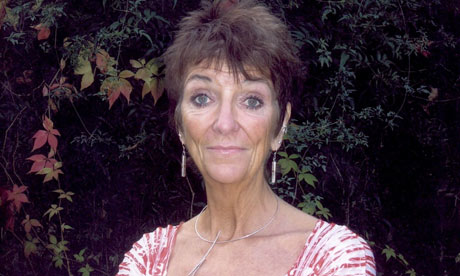
Monster Love, Carol Topolski's debut novel, shocked and impressed in equal measure. Longlisted for the Orange prize in 2008, it told the horrifying story of a couple who leave their daughter in a cage to die, exploring through a medley of voices what led them to infanticide. Her second, Do No Harm, delves into territory almost as disturbing: that of a doctor who deliberately sets out to maim her patients.
Virginia is a gynaecologist, committed, brilliant and respected, if a bit of an enigma. But squirming within her is a writhing mess of sickness and hatred, of hidden periods of gluttony followed by starvation, of self-mutilation and bondage, all the product of her extraordinarily unhappy childhood. This blossoms into bright, dangerous rage when she believes a woman does not deserve to be a mother. "Every time I hold a woman's womb in my hands, I struggle not to destroy it… I want to wrench it out of her. I want to smash it. I can. I have the power to kill it off and the skill to cover my tracks," she says.
Motherhood, good and bad, lies at the heart of Do No Harm, and at the heart of the sickening death with which it starts and ends. Told, as was Monster Love, from a multitude of perspectives, the novel again sees Topolski – a practising psychoanalytic psychotherapist – looking at the why behind the crimes. It's not a race-to-save-the-day sort of a thriller: we know from the second page that someone has been killed, that there's no saving her. Instead Topolski quotes Solzhenitsyn as her epigraph – "the line dividing good and evil cuts through the heart of every human being. And who is willing to destroy a piece of his own heart?" – and goes on to show how Virginia, repellent in many ways but struggling to be good, ends up on one side of the line.
Through Virginia's own voice as adult and child we learn of the appalling loneliness of her childhood, her desperation to please her uninterested parents, particularly her mother. Through glimpses into their pasts we learn why they, in turn, were unable to give their little girl even a smidgen of attention. We see how Virginia attempts to control the void inside her with disturbing acts of self-mutilation ("each time I cut into the crook of my arm, I choose to avoid the radial artery lolling close to the surface, daring me to die. Each incision is a victory") and bondage ("everything else drifts away like feathers from the mute-blind void in which I've been sealed… My identity crazes and shatters. No thinking, only feeling. No demands, only surrender. No one else. No loss, no insult, no longing. Only me.") And we see how, finally, she cracks.
Topolski's voices might occasionally jar – the child Virginia is grating – but overall her writing – rich, opulent and dripping with danger – rings true. This is a creepily menacing portrait of madness, of how and why good can turn to bad and the desire to help can turn into the desire to hurt.

